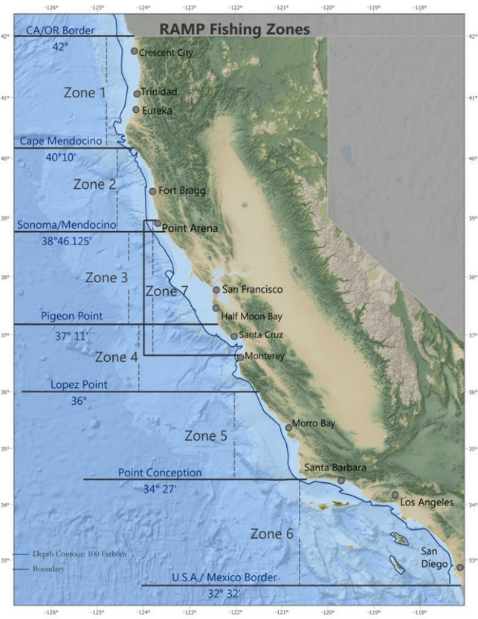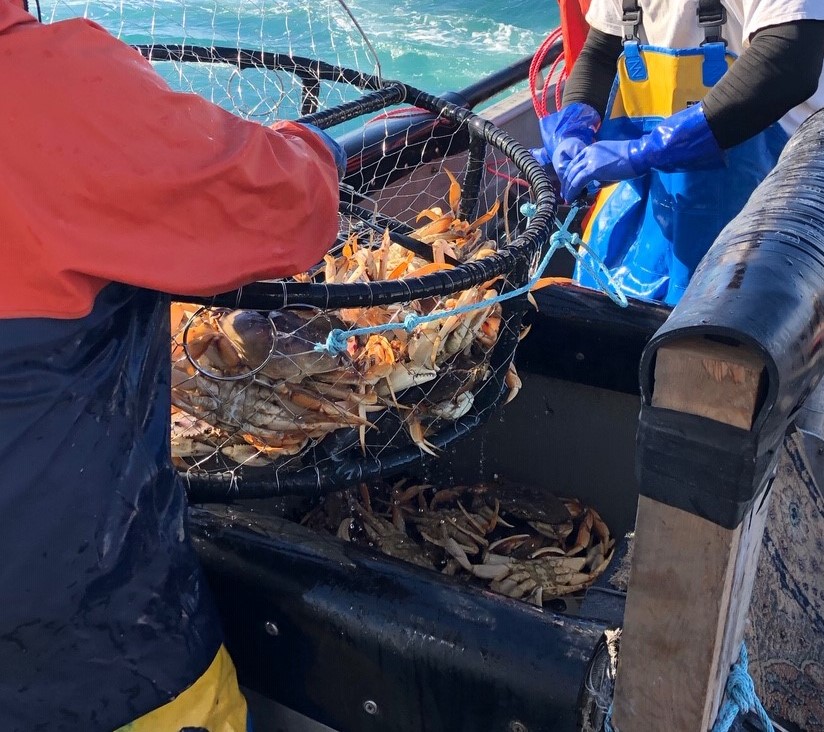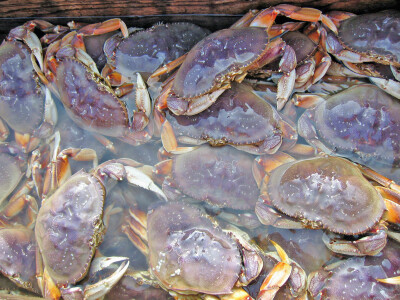California crabbers must pull their gear by noon June 1, with a decision by state officials to end the season, anticipating movement of humpback whales from their breeding grounds back to coastal waters.
The closure will shorten the season by four weeks in the central management zone and six weeks in the northern management zone. But the state Department of Fish and Wildlife’s Risk Assessment and Mitigation Program – developed after court challenges from environmental groups seeking to prevent gear entanglements – is working, state officials say.
The agency made its preliminary determination a week before the announcement, said Ben Platt, president of the California Coastal Crab Association.
“What’s extremely frustrating is that the Whale Working Group voted 10-2 to keep the state open with a 30 fathom depth restriction. The only whales spotted were outside of this depth,” said Platt. “This was already the management in the northern half of the state for the past two week period.
“There was absolutely no good reason to close the season, and guys were still making good money with high prices, up to $10 per pound, being paid for crab,” said Platt. “Guys in Eureka told me it was the most they had made all season, since it was historically low catch earlier.”

Environmental groups who have pushed the state to take extreme caution praised the decision.
“The new system of time and area closures is working; there have been no confirmed whale or sea turtle entanglements in California commercial Dungeness crab gear this season,” said Geoff Shester, campaign director and secior scientists for the environmental group Oceana, a member of the working group. “We commend the Department of Fish and Wildlife for collecting and acting on real-time data showing when and where whales have returned to feed.”
It’s the end to a tumultuous 2020-2021 season. California’s season was scheduled to start Nov. 15, but delayed twice with humpback whales reported migrating off the coast.
Crabbers agreed to hold off, mindful of RAMP regulations that could trigger a fishery closure if more than 20 migrating whales are in one of the fishing zones.
The season finally opened Dec. 23 – but at that point West Coast crabbers were joining a strike over low prices offered by seafood buyers. From that base price of $2.50 per pound, fishermen’s associations sought $3.30 and negotiated to $2.75 with the covid-19 pandemic still distorting markets.
“It has been a very difficult year for many in our fishing communities and I recognize that every day of lost fishing further impacts families and small businesses,” said DFW Director Charlton Bonham. “I acknowledge the sacrifices and resilience of California’s fishermen and women and look forward to continuing to work with the fleet and the Dungeness Crab Fishing Gear Working Group to minimize entanglement risk while maximizing opportunities.”
DFW officials say the state’s efforts have reduced “marine life entanglements from a high of 22 confirmed entanglements involving humpback whales, blue whales or leatherback sea turtles in 2016 to zero confirmed entanglements this season.”
The California Coast Crab Association recently headed off state legislation that would have mandated soon converting the fishery to so-called ropeless gear, traps without vertical buoy lines. State officials and environmental groups are still keen on testing ropeless gear and their technology for remotely activating pop-up buoys for retrieval.
But based on experience so far, industry advocates say the gear is unreliable and other management options could reduce already lowered entanglement hazards.







